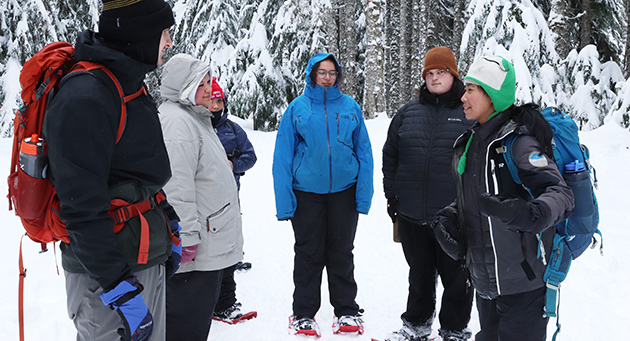
By Wade Sheldon, Tulalip News
As the year progresses and we sprint towards the end of the first month in 2024, exploring new activities becomes a focus, especially in the cold weather. If you enjoy outdoor activities and revel in playing in the snow, snowshoeing might be worth a try.
Crafted with a broad footprint that disperses the user’s weight, snowshoes offer a unique ability to glide atop snow-covered landscapes. Historical records, including those on Wikipedia, trace the invention of snowshoes back 4000 to 6000 years in Central Asia. Their evolutionary peak, particularly before the 20th century, manifested in the hands of North America’s Indigenous peoples. These communities, with distinct styles tailored to varied regional conditions, ingeniously utilized snowshoes not only for practical purposes such as hunting and travel, but also as integral elements in their cultural expressions, including traditional dances.
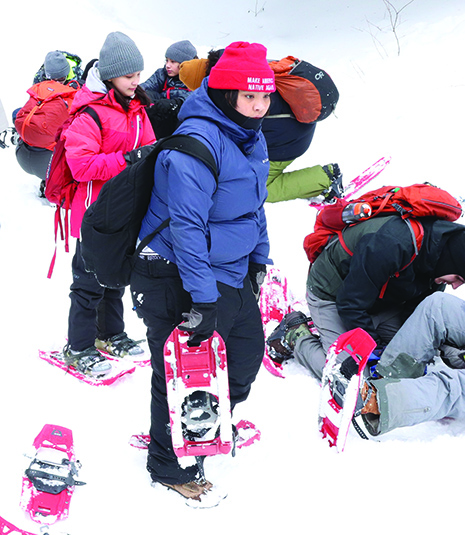
On January 20, Melissa Gobin, Tulalip Tribes Environmental and Education Outreach Coordinator, along with colleagues from the education department, and a few members of the YMCA Bold and Gold, an outdoor adventure tour group, invited tribal youth for a snowshoeing trip at Gold Creek Pond near Snoqualmie Pass. The hike would be about 2.8 miles roundtrip and relatively easy on the difficulty level.
During the hike, Melissa expressed her need for the youth to become more involved and learn how they could be the ones to help shape the future. As the youth trekked through the snow-covered landscapes, the journey wasn’t merely a physical exploration but also a venture into potential career paths. With unwavering passion, Melissa Gobin seized this opportunity to share insights on how connecting with nature could translate into meaningful professions within the tribe. Amidst the captivating beauty of the frozen scenery, Melissa underscored the significance of environmental stewardship and the vital role the younger generation plays in the future of the Tulalip community.
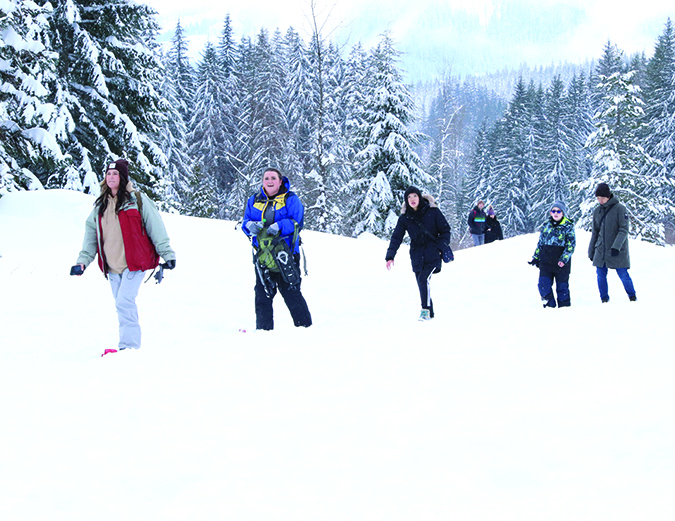
“That was my first snowshoeing trip, and it was pretty easy,” said Melissa. “I think getting the kids out and seeing a different area and that much snow while doing something out of the norm and watching them play and roll around in the snow was my favorite part. I like seeing the kids get excited, especially when they don’t want to go, but end up having fun. That makes me happy.
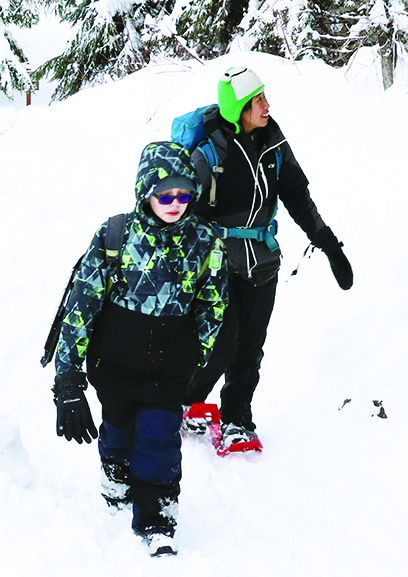
“I wanted the kids to know and appreciate that this is a beautiful surrounding. Protecting these types of areas is important to keep them safe for our future and our seven generations down the line. Getting the kids to appreciate the outdoors is something that my program is trying to establish. We are looking for kids who want to do these things and to be out in nature as stewards of the land. I want to educate the kids, but I want them to want to be there. I am trying to mold kids into becoming biologists, getting into forestry, and learning our treaty rights. That’s why we are doing this program to educate and get the kids involved so that we have a future in natural resources with our people. We have a lot of people that will be retiring, and we will need people to step up and take the mantle.”
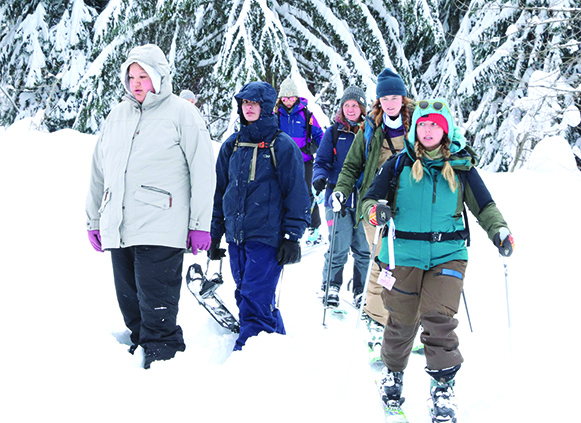
“I have never been snowshoeing before,” said Santana Shopbell of the Tulalip Education department. “I was nervous because the snowshoes didn’t look very durable, but man, are they good. I might need to invest in some because I might not be able to snowboard, but I can snowshoe. It was fun being out there with my mate and all the youth. This is my first week back with the education division, and it’s good to collaborate with Melissa and the YMCA. Hopefully, the trip sparked something in one of the kids to want to pursue a job in natural resources.”
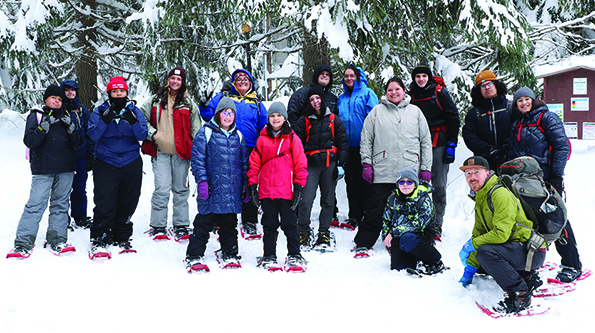
“Never been snowshoeing before, it was nice,” said Tulalip tribal member Luciano Flores. “It was fun and nice walking around the trail. My favorite part was walking across the frozen lake. If you were going, be prepared and have all the right gear.”
For information on future trips or the program, contact Melissa Gobin at mgobin@tulaliptribes-nsn.gov.